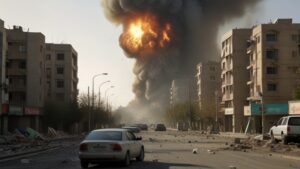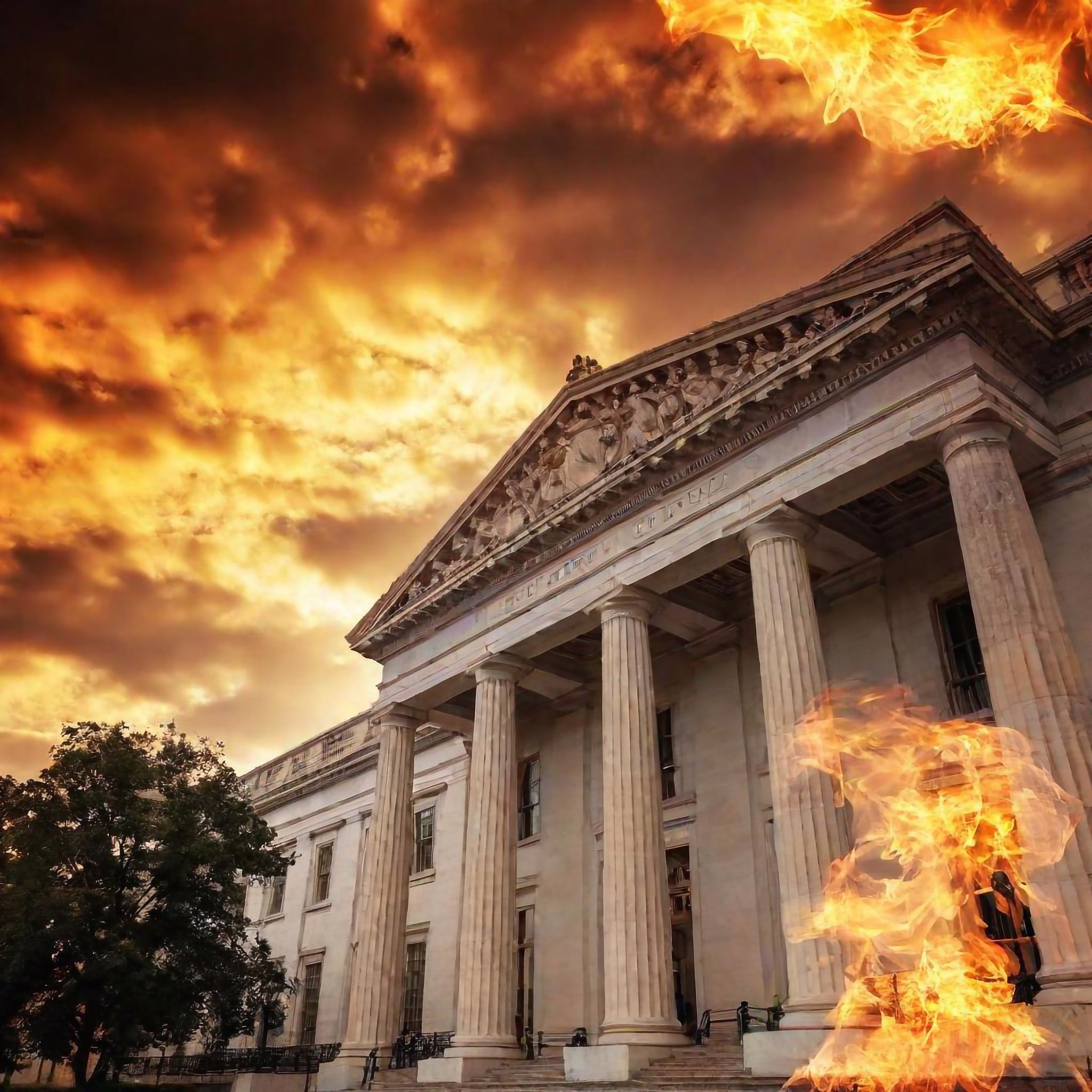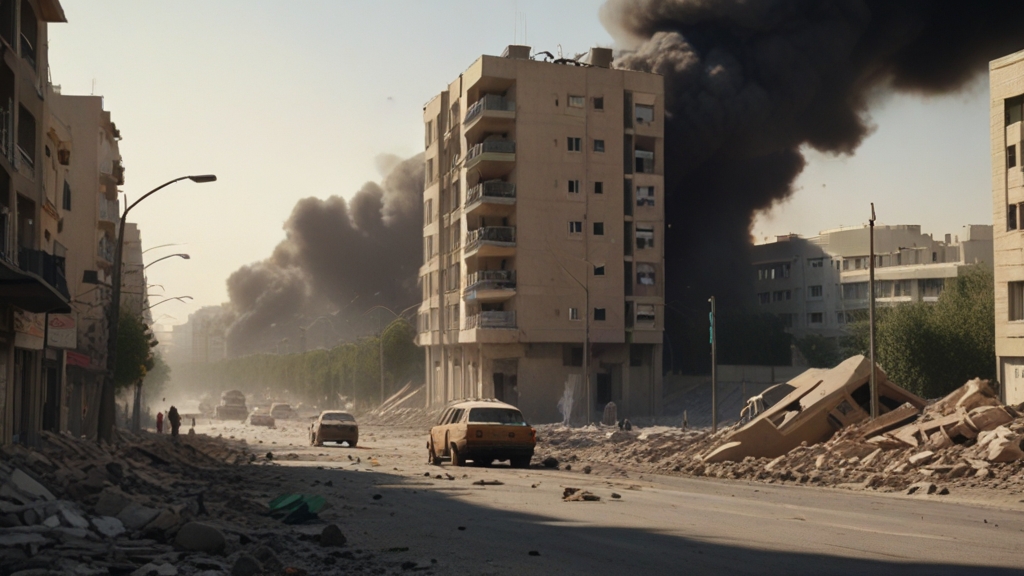As the world teeters on the edge of unprecedented geopolitical conflict, signs of intensifying hostilities and global tensions escalate further. The situation is reminiscent of the period preceding the Second World War, with strategic alliances, economic struggles, and military incursions creating a volatile global landscape. The ongoing war in Ukraine, the strained US-China relations, and the precarious economic conditions in major economies are a serious warning for what is to come.
The annual Jackson Hole symposium, traditionally a forum for discussing economic policies, takes on a graver significance this year with the US Federal Reserve considering interest rate cuts. The implications extend beyond domestic economic health to the stability of the global financial system.
Recent data revealed that the US economy created 818,000 fewer jobs than previously reported, which highlights the fragility of the current economic recovery.
Fed Chair Jerome Powell’s upcoming speech is expected to offer insights into how the US plans to navigate these turbulent waters, with potential rate cuts being a double-edged sword that could either stabilise or further destabilise the global economy.
Economists worldwide are closely watching for clues on the magnitude and speed of the expected rate cuts.
These monetary policy decisions are not just technical adjustments; they are part of a broader strategy to manage an economy that has been significantly weakened by the pandemic and subsequent inflationary pressures caused by overuse of quantitative easing.
There is also growing concern that the Fed’s actions might be too little, too late. As unemployment rises and the job market weakens, some analysts argue that the Fed’s hesitation has exacerbated the economic downturn.
Despite the worrying unemployment figures, some economic indicators suggest a more nuanced picture. The US economy, while showing signs of strain, has also demonstrated resilience.
Stock markets have rebounded, and the economy grew faster in the first half of this year than it did in previous decades. The Federal Reserve Bank of Atlanta’s estimates that the economy is growing at a 2% annual rate in the current quarter, although slower, is still far from signalling a recession. This complex economic backdrop makes the Fed’s decisions all the more critical.
Amidst this economic uncertainty, the geopolitical situation is rapidly deteriorating.
Ukraine’s incursion into Russia’s Kursk region marks a significant escalation in the conflict that has already devastated the Balkan region.
The Ukrainian forces’ control over parts of Russia is being reframed by the Kremlin as a “new normal,” indicating a shift in Moscow’s strategy and possibly signalling a longer-term occupation. This incursion complicates the already tense situation, with Russia reportedly prioritising its offensive in Eastern Ukraine over reclaiming the lost territory in Kursk.
The Russian media’s muted response to the incursion and the Kremlin’s downplaying of the situation suggest an attempt to control the narrative, but the reality on the ground is stark.
Ukrainian President Volodymyr Zelenskyy’s strategy of holding Russian territory as a buffer zone is a bold move that could have significant repercussions. Many Russian analysts and commentators are now calling for tactical nuclear weapons to be utilised either on Kyiv or the broader European theatre of war.
The deployment of battle-hardened Ukrainian units into Russia, despite the strain on Ukraine’s manpower, underscores the seriousness of this new phase in the conflict.
As the conflict between Ukraine and Russia escalates, further uncertainty within the situation is created and impulsive actions by both sides could be costly.
China’s deepening ties with Russia, despite its attempts to maintain a neutral stance, are particularly worrying. Beijing’s increasing involvement in global conflicts, combined with its strategic partnerships with Moscow, could draw the US and its allies into a more direct, overt confrontation with China.
The US and China are also locked in a strategic competition in the Pacific, with both superpowers vying for influence in the region.
This incessant contest in the Pacific has significant implications for global stability, as both nations seek to secure key shipping lanes and resources. China’s aggressive push for new partnerships in the Pacific, alongside its efforts to isolate Taiwan diplomatically, further complicates the situation.
In the Middle East, the situation is equally volatile.
US efforts to broker a ceasefire have so far been unsuccessful, with both sides holding firm on their demands. Full-scale war involving Israel, Hezbollah, and Iran, looms large, threatening to destabilise the entire region. Iran has vowed to continue enriching uranium for the purpose of making nuclear weapons.
Meanwhile, China’s economy is facing significant challenges, with growth falling short of expectations in the aftermath of the COVID-19 pandemic.
Calls for fiscal stimulus are growing louder, but Beijing has been slow to respond, opting instead for modest monetary policy adjustments.
The real estate sector, a key driver of the Chinese economy, remains in a precarious state, with home sales plummeting despite government efforts to stimulate the market.
China’s economic struggles are putting a serious strain on the global economy, particularly if the world’s second-largest economy slips into recession.
The combination of economic instability, geopolitical tensions, and the risk of military conflict has created a perfect storm that could lead to a third world war.
As central bankers, military strategists, and world leaders gather in Jackson Hole and other global forums, the decisions made in the coming months will be critical in determining whether the world can avoid another devastating conflict.
The parallels with the prelude to World War II are unsettling.
Strategic alliances are being tested, economic pressures are mounting, and the world’s major powers are increasingly at odds with one another.










When it happens it will be quick u wont be able to react.
How long can Ukraine pull off the Kursk invastion? Suicide mission?
Putin is gonna press the red button one day and that’s the end of that.
Russia will soon snap and when it does all goddam hell will break out. Watch it and C
i am worried if Trump gets in he will stop Ukraine money. Russia will then take Ukraine and I live in Romania he will take our country too.
The insanity continues!!!!!
We are in world war 5 now.